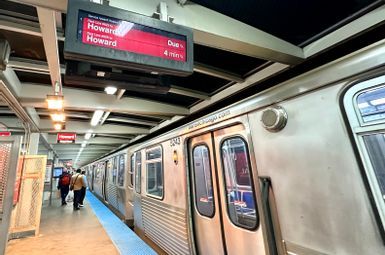
Research led by the University of Michigan arrived at a surprisingly unsurprising result while assessing the sustainability gap between public transit and services like Uber and Lyft.

Sustainability issues manifest differently in communities all over the world. Cities face challenges and opportunities related to evolving modes of mobility, access to renewable energy sources, changing land use, and the health and well-being of residents, among other issues. University of Michigan experts at centers like the Urban Collaboratory and Urban Energy Justice Lab are examining the interplay between cities, communities, and broader global sustainability, and sharing their insights with urban planners, policymakers, businesses, and community organizations.

Research led by the University of Michigan arrived at a surprisingly unsurprising result while assessing the sustainability gap between public transit and services like Uber and Lyft.
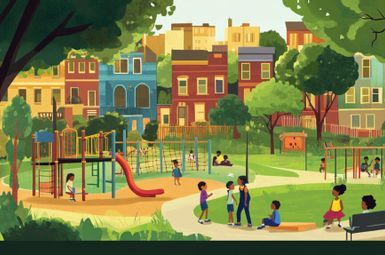
Community program and policy interventions aimed at reducing screen time are less successful in neighborhoods that lack green space
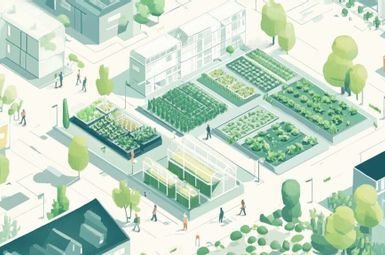
Built on the expertise and experiences of urban agriculturalists, along with research from the University of Michigan, a new policy brief urges Congress to fully fund the Office of Urban Agriculture.
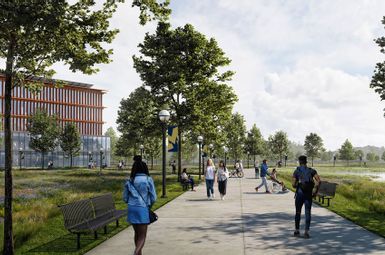
At the core of Campus Plan 2050 is a commitment to sustainability. The initiative proposes innovative infrastructure solutions, including geo-exchange systems designed for efficient heating and cooling through ground-source heat pumps, as well as extensive building retrofits that enhance energy efficiency and sustainability, and efficiency upgrades to the transit system.

The pathway to improving the health of hundreds of thousands of residents in Michigan’s largest cities is laid out in a new information hub that provides a panoramic look at the major factors impacting the wellbeing of these individuals.
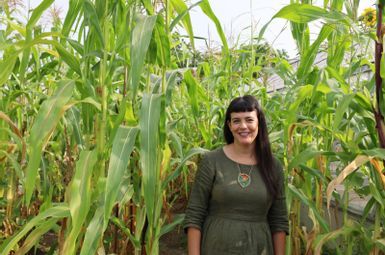
Maples is an Anishinaabe seed keeper, educator, and community organizer who has dedicated over a decade of work to Indigenous food sovereignty and justice.

Greater human-wildlife overlap could lead to more conflict between people and animals, say the U-M researchers. But understanding where the overlap is likely to occur—and which animals are likely to interact with humans in specific areas—will be crucial information for urban planners, conservationists and countries that have pledged international conservation commitments.
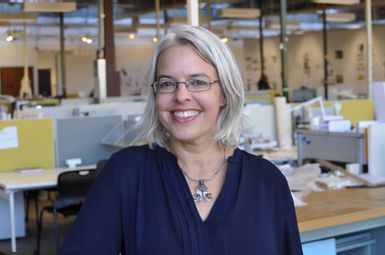
Urban agriculture can support cities’ wider goals and provide residents with self-grown, nutritious food if more governments start supporting – instead of criminalizing – the practice, Taubman College faculty member Lesli Hoey argues in a new book.

As the architect of the Solar Energy Research Institute, which won 42 awards and was named the most energy-efficient building in the world, Rich von Luhrte knows how something is built is just as important as what is produced and why. That knowledge and his passion for addressing climate change have led him to establish a scholarship supporting students studying urban design.
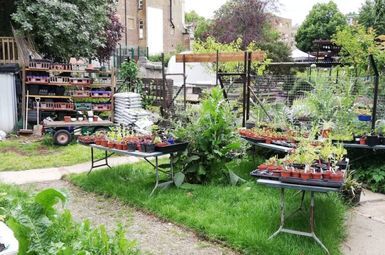
A new U-M-led international study finds that fruits and vegetables grown in urban farms and gardens have a carbon footprint that is, on average, six times greater than conventionally grown produce.
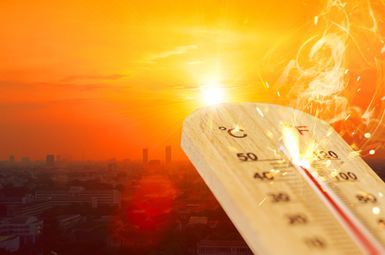
"“And the warming will continue to accelerate until we halt the burning of fossil fuels. This means continued worsening extreme heat and heat waves, but also many other worsening climate extremes driven by warmer temperatures. More severe droughts, more intense rainfall, more devastating hurricanes and bigger, more widespread wildfires."
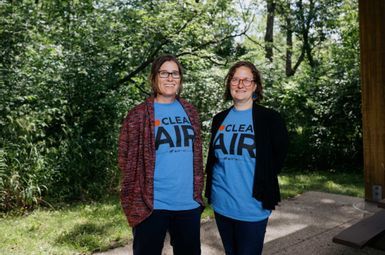
The Environmental Health Research-to-Action Academy is a community-academic partnership focused on building skills and intergenerational knowledge in environmental health, community science and policy advocacy to address cumulative environmental exposures in the nearby communities.
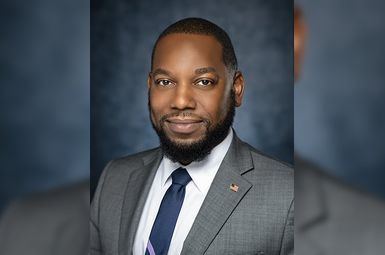
Associate Professor Tony Reames will be returning to the University of Michigan School for Environment and Sustainability (SEAS) from his leave of absence at the Department of Energy (DOE), where he served as the Principal Deputy Director for State and Community Energy Programs and the DOE’s Deputy Director for Energy Justice. Reames will become the Tishman Professor of Environmental Justice at SEAS and serve as the new Director of the SEAS Detroit Sustainability Clinic, effective January 2024.
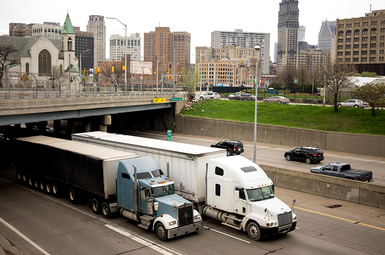
A U-M Public Health research team will support community leaders from the Southwest Detroit Community Benefits Coalition and the Southwest Detroit Environmental Vision, who are working to develop an app that quantifies truck traffic using data from phones and other electronic devices.
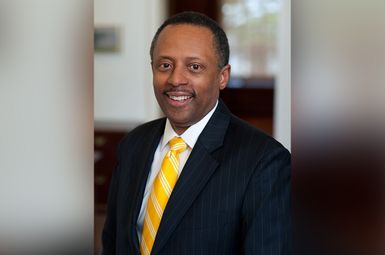
Ann Arbor and other cities across the Midwest and Northeast have been referred to by climate specialists as “climate havens,” natural areas of refuge that are relatively safe from extreme weather events such as intense heat and tropical storms.
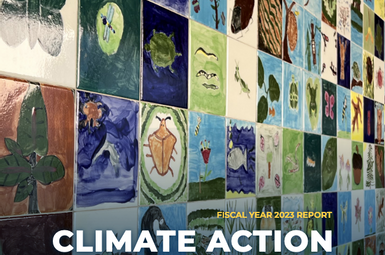
Since 2010, the university has reduced its total greenhouse gas emissions by 28%, even as total building area has increased by 14%. U-M is on pace to reduce its total quantified emissions by 50% by 2025, exceeding Intergovernmental Panel on Climate Change guidance to reduce emissions by 45% by 2030.
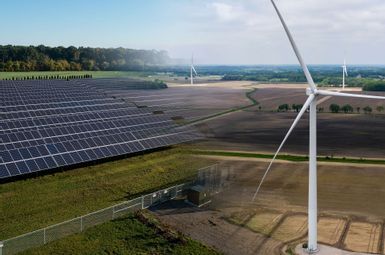
The Center for EmPowering Communities will help Michigan communities tackle the planning and zoning challenges related to renewable energy projects such as wind and solar installations. In addition, the center will spur collaborative research that integrates social science with technology design, community engagement and policymaking.

In Detroit in 2019, there were four times as many hospitalizations for asthma than the state of Michigan as a whole, and Detroit ranks among the 20 most challenging cities for people with asthma to live.
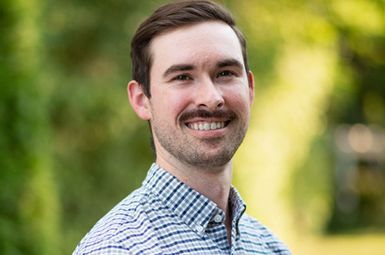
The winning submission provided a hyperlocal blueprint for safe CO2 sequestration and integrative city planning in Houston, Texas, with a replicable pipeline system designed for major metropolitan areas.

"There’s a huge need for people who understand the natural environment and want to work in the urban setting. It’s a surprising gap where best and promising practices from natural resource management don’t make it into the urban planning and urban design space."
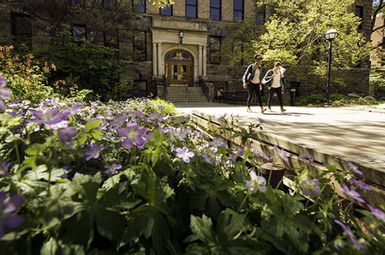
"We often say you don’t know where you’re going unless you know where you came from. Studying our history and being aware of all of the deep nuances of Black ag history is so important for what we’re doing today."
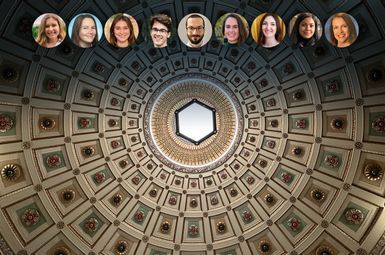
The Catalyst Leadership Circle (CLC) Fellowship has selected nine graduate students for its 2023 cohort. Partnering with ten townships across the state of Michigan, fellows will undertake a summer applied research experience in advanced sustainability projects.
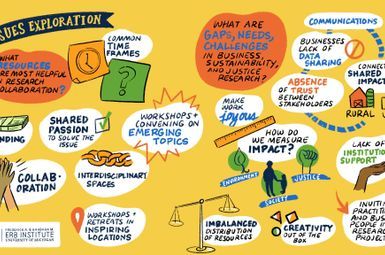
Instances of injustice lie everywhere—from workers’ rights violations to pollution that disproportionately harms low-income communities of color. The Erb Institute recently convened the workshop “Building Connections for Business, Sustainability & Justice Research,” bringing together scholars, corporate leaders and advocates to explore how research can inform solutions to pressing environmental, social and racial justice challenges.

Architect Mania Aghaei Meibodi and researchers Alireza Bayramvand and Yuxin Lin of the DART lab at U-M’s Taubman College of Architecture and Urban Planning, have developed a method for creating ultra-lightweight, waste-free concrete. The method reduces weight by 72% as compared to conventional, solid concrete of the same size, and is leading to new partnerships and patents beyond U-M.

As climate change and population growth make water scarcity increasingly common, a much larger share of the global population will be forced to reckon with the costs of urban water scarcity. A new study sheds light on how households bear the monetary and nonmonetary costs when water supply is intermittent, rather than continuous—with policy implications that could help make urban water safer, more sustainable and more equitable.
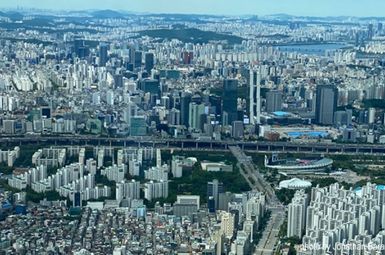
The world’s building stock is expected to double by 2060, adding the equivalent of one New York City in new construction every month. Yet construction methods and materials that dominate the building sector are carbon-intensive, unhealthy for people, destructive to the environment, and are becoming increasingly expensive, with much of the burden falling on vulnerable populations.
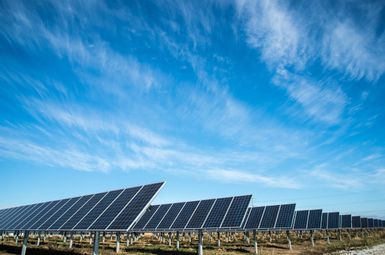
U-M is planning to build on-campus solar installations with a capacity of 25 megawatts across the Dearborn, Flint and Ann Arbor campuses, including Michigan Medicine and Athletics. The total amount of electricity that would be generated by the installations is estimated to equal the power consumed by approximately 3,000 homes annually.

Classmates Cecilia Garibay and Dolores Migdalia Perales teamed up to develop the Michigan Sustainability Case, “A Tale of Two (Polluted) Cities: Latinx communities and their allies face air pollution in Southwest Detroit and Southwest Los Angeles.”
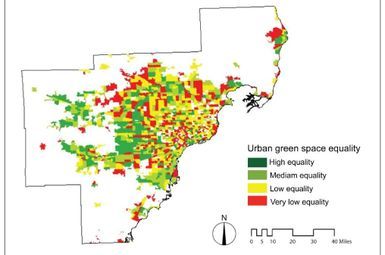
Most Southeast Michigan residents do not have equal access to urban green spaces, according to a new U-M study. Researchers analyzed data from seven counties in Southeast Michigan and looked at how far residents must travel to reach a park, community garden or some other form of urban green space.
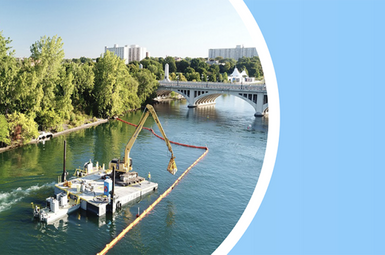
The report calls for “urgency” in cleaning up toxic sediment on the bottom of the Detroit River. Remediation is needed on the Detroit side, but not on the Canadian side, according to the report.
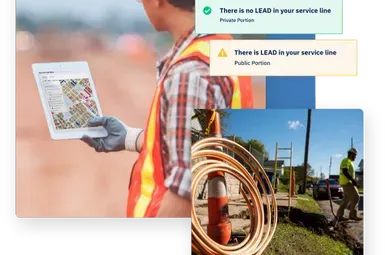
A U-M startup that helped accelerate the removal of dangerous lead pipes in Flint and many other communities has joined a White House partnership aimed at replacing all of the nation’s lead service lines in a decade. The public-private initiative aims to expedite the removal of lead in drinking water — a problem that rose to national prominence when lead was discovered in Flint’s drinking water several years ago and spurred a public health crisis.
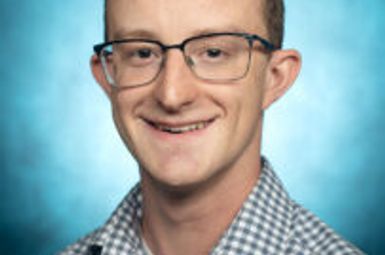
"There has been a lot of working trying to understand the role of urban gardens and farms in cities. And the general conclusion is that it can provide a lot of social, economic and environmental benefits. Urban agriculture is this sort of unique land use that is extremely customizable to the needs of the community. "
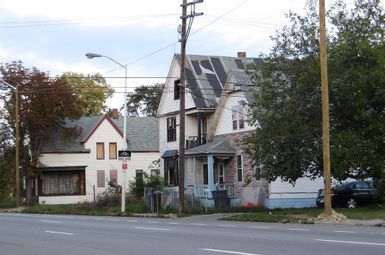
Access to quality housing is essential to our well-being and the gateway to resources. Unfortunately, this basic necessity remains out of reach for far too many families, creating an ongoing crisis plaguing millions of Americans.
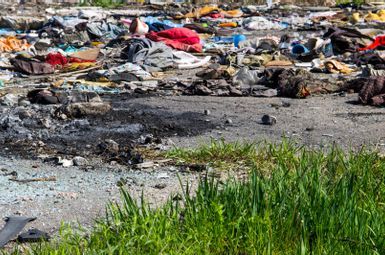
A $2.2 million, four-year grant from the CDC will fund a study examining the effects of illegal dumping interventions on the prevention of violent crime in Flint, Michigan. U-M School of Public Health researchers are partnering with Genesee County Land Bank and the Center for Community Progress to conduct the research on county-owned vacant lots to develop sustainable approaches to curb illegal dumping and community violence.
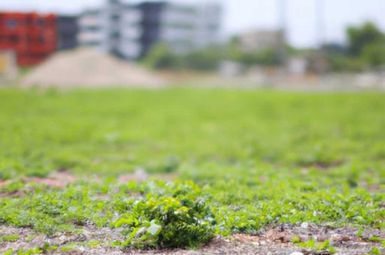
Communities that are engaged in cleaning, mowing and repurposing vacant spaces are likely to experience greater reductions in violence and crime than neighborhoods that do not participate in these activities, according to new research led by the University of Michigan.
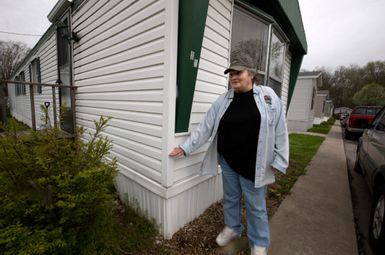
Many small and mid-sized communities like Goshen, IN simply don’t have the resources to tackle a global crisis like climate change on their own. So in 2018, Goshen was one of 12 cities that partnered with Great Lakes Integrated Sciences and Assessments (GLISA), an organization led by U-M that’s working to help small and mid-sized cities plan for a future that will be shaped by a changing climate.

Projects will pursue a range of carbon neutrality pathways, including carbon capture, renewable fuels, energy storage, aircraft electrification, solar power, chemical production, and circular economies.
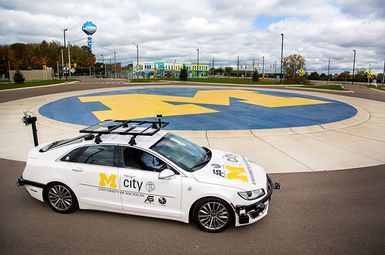
Mcity, which operates the world’s first purpose-built test environment for connected and autonomous vehicles (AVs), will invest $5.1 million from the National Science Foundation to supercharge the facility’s evolution into a test track unlike any other. By enhancing its physical testing environment, adding virtual reality software and generating real-world datasets, Mcity can provide tailor-made simulation scenarios for AV software testing.
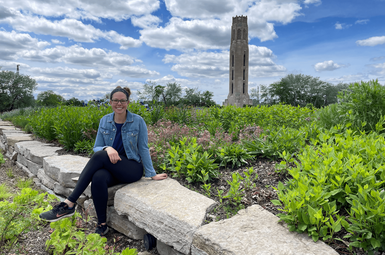
As a board member of the nonprofit Cass Community Social Services organization in Detroit, SEAS master’s student Isabella Shehab has seen firsthand the challenges the city and its residents face: vacant buildings, aging infrastructure, flooding. Now, Shehab is using a scholarship awarded through the Landscape Architecture Foundation (LAF) to research the impacts these challenges have on Detroit residents’ mental health and well-being—all with an eye on solutions.
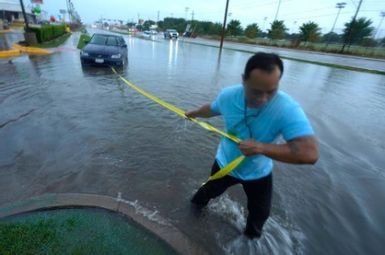
Floods are complex events, and they are about more than just heavy rain. Each community has its own unique geography and climate that can exacerbate flooding, so preparing to deal with future floods has to be tailored to the community.
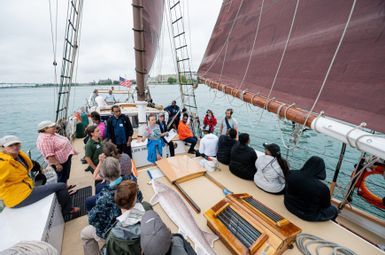
The Detroit River Story Lab’s Skiff and Schooner Program is setting sail for its second summer, this time accommodating even more students in its quest to foster connection between the river and its communities. Students from 15 Detroit high schools, two colleges and six youth-serving organizations will board the schooner throughout the summer to learn about various topics focused on the environmental and cultural history of the Detroit River, ranging from marine biology and wildlife restoration to the Underground Railroad.
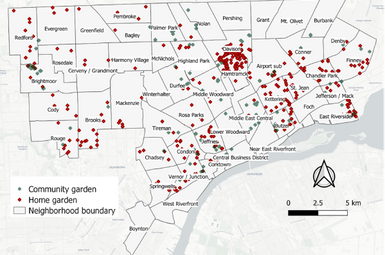
A wide-scale look at Detroit’s urban gardens finds that while they don’t seem to foreshadow gentrification in the city, there are some unsettling trends about where they’re located and the sociodemographics in those areas.
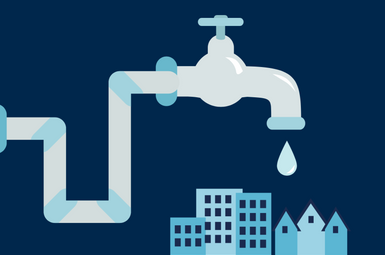
Math achievement for school-age children in Flint decreased and the proportion of children with special needs increased as a result of the Michigan city’s water crisis during 2014-16, according to a new U-M study.
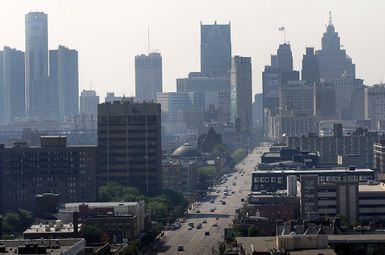
Two years into the pandemic, 72% of Detroit residents say their financial situation has stabilized or improved compared to a year ago, and there's evidence that stimulus checks and the expanded Child Tax Credit played a role in reducing Detroiters' experiences of economic hardship. Additionally, 17% of Detroiters reported experiencing one or more utility or service shut-offs in the last year, with the most common form being the disconnection of phone or internet service.

"Greenprint Detroit: Advancing Ecological Literacy through the Lens of Legacy Soils" aims to advance ecological literacy of the community members of the McDougall-Hunt Neighborhood (bounded by Gratiot, Vernor, and Mt. Elliot) on Detroit’s east side.